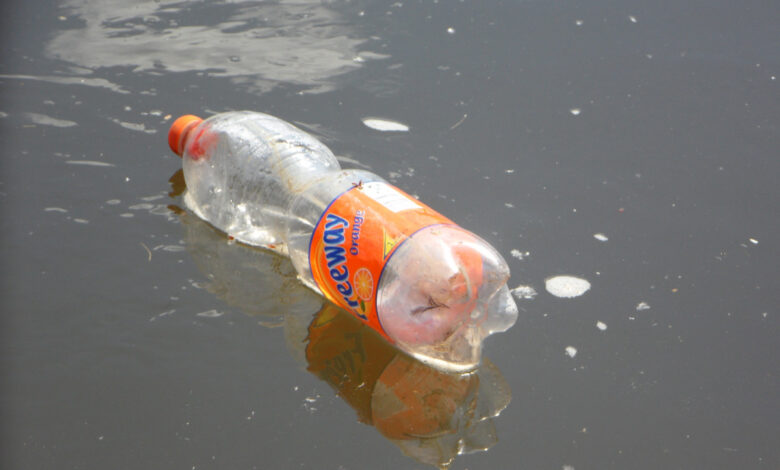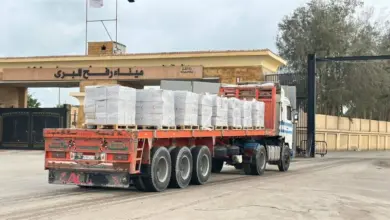
The sheer volume of plastic material usage in Egypt is terrifying, but what’s even scarier is that that the government’s efforts aimed at reducing this usage seem to be taking place in one world, while the people are in another.
In 2019, the Red Sea Governorate decided to ban the individual use of plastic bags due to their devastating impact on the marine environment, but that was “only one” initiative, as no other governorate implemented it.
The bigger threat is that Egyptian consumption of plastic products of all kinds is constantly increasing, and other alternatives such as paper bags are rare or very expensive.
The result is that plastic bags are everywhere, almost filling the streets, public places, and homes.
Egyptians’ consumption of plastic products reached five million tons in 2023, according to a report by the Cabinet’s Information and Decision Support Center, which indicated that the annual growth in demand for plastic in Egypt increases at a rate of 7.5 percent annually.
What does this mean? That efforts to reduce its use are unsuccessful, and that the goal of the national strategy to reduce plastic use, by reducing the annual consumption per capita from 565 bags in 2023 to only 50 by 2030, will not be achieved.
What makes the matter difficult and impractical is that the plastic industry is one of the larger industries in terms of workforce, with 550,000 people working in it. Egypt is not alone in this predicament.
Humanity produces 430 million tons of plastic annually, two-thirds of which are short-lived products that quickly turn into waste that fills the oceans and seas, and often finds its way back into the human food chain.
Microplastics are present in food, even fruits, vegetables, tap water, and bottled water. A recent scientific study even revealed that researchers found very small fragments of plastic in the brains, arteries, and kidneys of humans, according to the Scientific American Journal.
Plastic materials also lead to the suffocation of wildlife and marine life, damage the soil, and poison groundwater.
Every year, 280 million tons of plastic materials are buried in waste. Only 22 percent of them are recycled. Scientists say it may take a full thousand years for them to decompose safely. Plastic is now more abundant than fish in the oceans. Fish die or are caught, but plastic turns into small particles that pollute every corner of the planet.
There are Egyptian governmental efforts to address the problem, but they lack popular support. A large percentage of Egyptians are not aware of the deadly impact of plastic bags on their health, their environment, and the climate as well.
Owners of fruit and vegetable shops, bakeries, and others use plastic bags because they are cheap. Major supermarket chains are only interested in profit, so they do want to use paper bags.
Some even believe that paper and wood alternatives are impractical and harmful, such as US President Trump, who recently signed an executive order to end the use of paper straws, calling on Americans to return to using plastic straws, saying, ‘Paper doesn’t work and is silly.’
Alas, ignorance runs the world.
Author’s bio
Abdel Allah Abdel Salam is the managing editor at Al-Ahram newspaper where he writes a daily column titled “New Horizon”. He holds a Bachelor’s degree in Journalism from the Faculty of Mass Communication, Cairo University (1987).
He began his journalistic career at Al-Wafd newspaper, then moved to the Middle East News Agency, before settling at Al-Ahram newspaper in June 1991. He founded the Al-Ahram electronic portal and served as its editor-in-chief from 2010 to 2013.
He held the position of executive editor-in-chief of the Al-Masry Al-Youm website in 2013.
Salam has also worked as managing editor of the Al Ain (UAE) portal in 2016, and managing editor of the “Al-Watan” (Egyptian) newspaper’s website in 2017.




